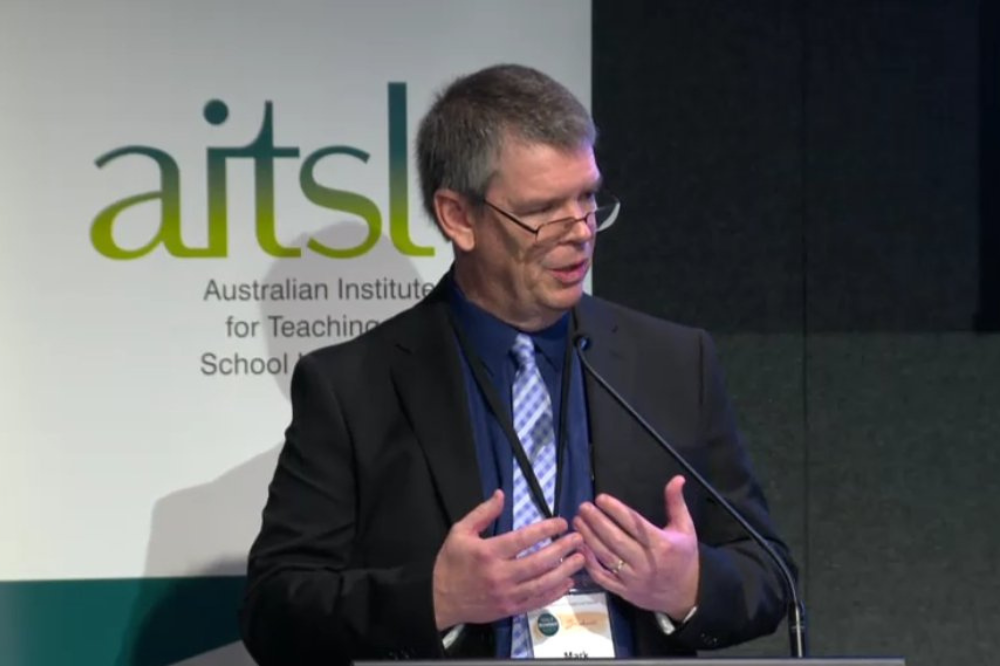
This year, Australia’s school leaders were tested in some extraordinary ways, helping their staff and students through fires, floods, and the Covid-19 pandemic.
While these crises caused severe disruption, they also demonstrated that Australia’s teaching profession is resilient, adaptable, and able to support student learning under the most difficult circumstances.
During 2022, many schools became temporary shelters for impacted communities, with principals and their staff called upon to go well above their call of duty to ensure the safety and wellbeing of young people and their families.
Mark Grant, CEO of the Australian Institute for Teaching and School Leadership (AITSL) said 2022 was “another year where we learnt just how critical the profession is to the country and its ambitions”.
“The profession has continued to focus relentlessly on supporting our four million students, and we should all be proud of the expertise that exists in schools across the nation,” Grant told The Educator.
“Even though we’ve moved to a more ‘COVID-normal’ as the year progressed, school leaders have still had many challenges presented to them, including maintaining a focus on student learning in the face of significant teacher supply and retention difficulties.”
‘The solution to teacher demand isn’t a quick fix’
Grant said one of the most significant challenges for all leaders heading into 2023 is ensuring there are enough suitably qualified teachers in front of every classroom, every day.
“Principals have such high standards for their students, but they can’t do it alone,” he said.
“The solution to teacher demand isn’t a quick fix. With the promise of a National Teacher Workforce Action Plan [NTWAP] about to be confirmed by Australia’s Education Ministers, nothing less than a united focus on retaining the excellent teachers we have and attracting more people into the profession will suffice.”
Another challenge, says Grant, is the effective use of all staff to support the work of classroom teachers, including school administrative staff, teacher aides and middle leaders.
“Principals must continue to find ways to allow their teachers to teach, to focus their own time on what matters most, and to ensure their line managers facilitate this,” he said.
“We need to ensure our many and varied school leaders across Australia have access to high-quality professional learning to develop their professional practice. It’s also important they have access to expert mentors and that explicit career pathways are utilised to retain and develop them in the profession.”
‘We need to make sure the right people are focusing on the right tasks’
In March this year, The Australian Principal Occupational Health and Wellbeing Survey Report found that Australian principals are experiencing record levels of stress and burnout amid soaring administrative workloads and pressure from parents, governments and other education stakeholders.
The report found that principals and their deputies are working at least 55 hours a week on average, while a quarter reported working more than 60 hours a week.
“Principals play a critical role in providing pedagogical leadership and leading school improvement, but there are some things they do that are less relevant to this core business. We need to make sure the right people are focusing on the right tasks in schools,” Grant said.
“In recent times we’ve seen greater awareness of this shared problem – reports from AITSL and others have discussed these challenges, and systems are increasingly supporting schools to employ suitably qualified non-teaching staff who assist principals to undertake school administration and management tasks.”
However, Grant says more can be done at all levels to reduce the administrative burden on principals.
“I anticipate further innovations will take place in 2023 with the draft NTWAP including a $25 million Workload Reduction Fund to support pilot initiatives that maximise the value of principals and teachers’ time.”
A powerful opportunity to pay it forward
Looking ahead into 2023, Grant said the Institute will be improving existing supports for teachers and school leaders.
“AITSL’s strength is in working with the profession to benefit the profession. Teachers and school leaders are at our core, and we will continue to collaborate and consult with as many as possible to support and guide their work,” he said.
Grant said some teachers are seeking a career pathway other than one through promotional channels because they want to keep a teaching role but receive greater recognition and remuneration for their exceptional skills.
“Initiatives like national certification of Highly Accomplished and Lead teachers [HALTs] are important here because we know they support teachers to develop their expertise and progress their career,” he said.
“This recognition of our highest performing teachers is essential to build the esteem of the profession. It’s critical that initial teacher education students are also given the support and guidance to ensure they are classroom ready.”
Grant said there is an opportunity to develop and implement strategies so that highly skilled educators pass on their knowledge and expertise to those entering the workforce.
“I expect that AITSL will be central to delivering on both of these pillars.”
“In 2023, AITSL will continue our work with the Queensland Department of Education and their school leaders to develop and trial professional standards for middle leaders.”
Grant said the Institute is also supporting the use of mentors for pre-service and early career teachers by releasing an environmental scan on mentoring programs and will develop mentoring standards.
“There are many challenges and opportunities ahead for our 9,700 principals and their staff, and AITSL will be there to provide support in whatever way possible.”


